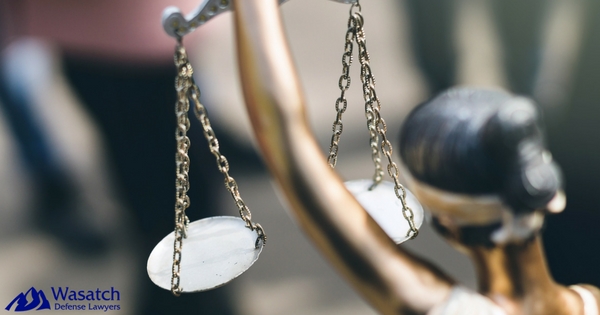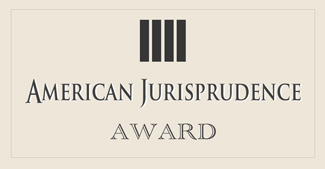
In simple English, “abeyance” means to be in a state of temporary suspension. Legally, a plea in abeyance or a means that you can have your criminal charges dismissed by the prosecuting attorney if you agree to meet certain conditions. If you do meet these conditions, you will keep a conviction off of your record as well as avoid prison or jail time.
In some cases, a plea in abeyance can lower the degree of the criminal offense that you face rather than resulting in the case being dismissed altogether. For example, a felony might be reduced to a misdemeanor or a misdemeanor may be reduced to a simple infraction. While a plea in abeyance for a felony might still entail jail time, this option does help you avoid getting a felony conviction on your record. Felony convictions can have life-altering effects, such as making it difficult to obtain certain jobs or preventing you from legally owning a gun. For this reason, speaking with a Utah criminal defense lawyer about a plea in abeyance that will reduce the felony that you face to a misdemeanor might be the best option.
In short, pleas in abeyance are used to help rehabilitate defendants and put them in the best position to avoid making similar mistakes going forward. Some courts in Utah will allow the court clerk to enter a plea in abeyance rather than making the defendant go in front of a judge for certain offenses.
When you enter a plea of abeyance, you are agreeing to several conditions:
- You agree to plead either “no contest” or “guilty” to the charges that you face;
- You understand that your plea will be suspended for as much as one year;
- You agree to fulfill all of the conditions outlined in your plea in abeyance agreement;
- You understand that you will have the charges against you dismissed following this abeyance period, leaving no record of a conviction.
Note that, even after you fulfill the terms of your plea in abeyance agreement and have the charges against you dismissed, the record of the charges that you faced and the fact that you entered a plea in abeyance will still exist. You would need to seek to have the criminal records expunged in order to seal them.
Frequently Asked Questions About Plea in Abeyance in Utah
A criminal conviction in Utah can result in a prison sentence, financially disastrous fines and restitution, living under probation restrictions, difficulties finding employment, loss of basic rights, suspended licenses, and other serious consequences. A plea in abeyance agreement offers an opportunity for many people facing prosecution in Utah to avoid such serious outcomes. A skilled Utah criminal defense attorney can help you in your effort to obtain a plea in abeyance agreement.
Here is a list of the most frequently asked questions about having a plea held in abeyance for a defendant in a Utah criminal case:
What Does a Plea in Abeyance Mean?
In the majority of criminal cases, when a defendant pleads innocent, the case goes to trial, and when a defendant pleads guilty or pleads no contest, the court enters a conviction into the record and proceeds with sentencing the convicted person. A plea in abeyance is an arrangement that can be negotiated with a prosecutor as an alternative to going to trial in a court case.
Is a Plea in Abeyance a Conviction?
No. A plea in abeyance agreement is reached between the defense and prosecutor. The defendant is required to satisfy conditions set forth in the agreement, and after the terms are met successfully, the case is usually dismissed. The plea in abeyance agreement allows both the prosecution and defense to avoid the costs and risks of a jury trial.
What Are the Benefits of Pleading in Abeyance?
After your charges have been dismissed, you can apply for an expungement of the record of the charges in your case. If you are eligible to have your charges expunged, then you will no longer have a criminal record, and it will be as if the case had never existed.
Who Is Eligible for a Plea in Abeyance?
Defendants can qualify to obtain a plea in abeyance in cases with charges ranging from misdemeanors to first-degree felony cases. In certain cases, defendants may not be eligible for a plea in abeyance agreement. In such cases, a defendant may still be able to qualify for a diversion, which is a different kind of plea negotiated with the prosecutor.
Defendants do not qualify for a plea in abeyance in:
- Cases involving charges of a sexual offense against someone under 14 years of age
- Cases involving DUI charges
- Cases in which the defendant and prosecutor do not agree on a plea
Typically plea in abeyance agreements are only available to defendants who lack a prior criminal record, and prosecutors generally offer such pleas as a limited one-time offer. In addition, the criminal charge that you face must itself qualify. Utah’s Uniform Fine / Bail Schedule outlines the charges that permit pleas in abeyance in Utah. To see if you qualify, locate the violation you are charged with. The violation code will appear on the citation that was presented to you by the police officer who cited you. The column titled “Man Appr” will indicate whether or not the violation you are charged with qualifies for a plea in abeyance. If the violation you are charged with is marked “Y,” you cannot enter a plea in abeyance with the court clerk and must instead personally appear in front of a judge. However, if the offense is marked “N,” you can enter a plea in abeyance with the court clerk.
What is Required to Satisfy the Terms of Your Plea in Abeyance?
What Do I Need to Do to Get a Plea in Abeyance?
To get a plea in abeyance agreement, you have to negotiate with the prosecutor and convince him or her to offer it. A judge cannot order a plea held in abeyance without consent from the prosecutor. This offer is not offered freely by prosecutors. It may require an experienced trial attorney, skilled in such negotiations to convince a prosecutor that it’s a sound idea to offer a plea in abeyance agreement.
Prosecutors weigh a number of considerations, to help them determine what is reasonable for them to offer. For example, if your attorney can identify potential problems with the evidence, or offer mitigating facts about you (such as no prior criminal convictions, productive activities like work or school, doing volunteer work, attending counseling, etc.), the prosecutor may decide to agree to abeyance.
Will a Plea in Abeyance or an Abeyance in a Sentence Show up on a Background Check?
With a plea in abeyance, the court is accepting a plea of guilty or no contest. But, the court does not then follow through with entering the plea into the court record as a conviction. The court instead holds the plea in abeyance, while the defendant is fulfilling the terms of the abeyance agreement made between the defendant and the prosecutor.
This means that although your case may remain on the public record, it should not appear in a criminal background check, whether the check is done before or after the case has been dismissed, if the check is only searching for convictions either.
With a plea in abeyance, more thorough criminal background checks that search for arrests and court cases may still show a record of the case, even after it has been dismissed.
Will the Plea in Abeyance Stay on My Record After the Case Is Dismissed?
Completing the terms of your plea in abeyance agreement can allow you to avoid having a record of criminal conviction. However, after the charges against you have been dismissed, you must obtain an expungement of your record, in order to clear the case from your record.
Court records will continue to show the criminal charges, your plea, and the status of your plea in abeyance. Once the case is dismissed, the court records will still contain the court proceedings and show that the case was dismissed, unless and until you receive an expungement of your record.
How Can My Record Be Cleared After the Case Is Dismissed?
Expungement is the usual process for clearing a record after a plea in abeyance is successful and a case has been dismissed. The process for expungement requires submitting an application to the Utah Bureau of Criminal Identification (BCI), submitting a petition to the court, and providing documents to the prosecutor. All parts of the process must be completed in order to expunge the criminal record.
There is a 30-day waiting period before the defendant is permitted to apply for the certificate of eligibility for an expungement. (By contrast, the waiting period to apply for an expungement after a conviction is 3 to 10 years.)
After an expungement order is entered, the order is also sent to government agencies that maintain the court or arrest records, requiring them to respond to inquiries about the case as if the records do not exist. The expungement order also permits the person with the expunged record to answer any inquiries about your background as if the arrest or criminal conviction did not happen.
Is It Possible to Get a Plea in Abeyance for a Drug Charge in Salt Lake County?
Two of the most common ways to obtain a plea in abeyance agreement from a prosecutor in Salt Lake County are through the county court’s ASAP program or drug court. Drug court convictions tend to lead to a lengthy prison sentence held in abeyance. In some cases, a defendant may be able to get a plea in abeyance without going through one or the other. But, a prosecutor is more likely to require participation in one or the other, in order to hold a plea in abeyance.
Multiple appearances before the judge may also be required, to help ensure the defendant is staying sober, and sanctions may be imposed on a participant who fails to comply fully with conditions of the program.
What Does the Sentence “Held in Abeyance” Mean?
A sentence held in abeyance is a sentence handed down by a judge, but not imposed on the defendant as in the normal course following conviction. Instead, the sentence held in abeyance, which means it can be imposed at any time the court deems appropriate.
What Concerns Should I Have About a Plea in Abeyance Agreement?
When you agree to a plea in abeyance, you waive most rights of a criminal defendant. (Utah Code 77-2a-3) These rights include right to jury trial, right to call witnesses, confront and cross-examination witnesses, the right to testify on your own behalf, and the right to an appeal, among others.
When the court accepts your plea of abeyance, you cannot later withdraw the plea, except by filing a written motion no later than 30 days after you plead no contest or plead guilty and demonstrate that you did not voluntarily make the plea of abeyance.
If the court determines that you have not substantially complied with each condition as agreed, without a permissible cause for the failure, the judge may terminate the plea in abeyance agreement, hand down a conviction, and proceed with sentencing.
Are You Facing Criminal Charges in Utah and Curious if You Qualify for a Plea in Abeyance?
Our team of talented Utah defense attorneys can help you explore your options, whether you are facing a new criminal charge or are looking for a 402 reduction or expungement to help clear your record. Wasatch Defense Lawyers serve clients throughout Utah, and our experience and expertise have led to a lengthy list of dismissals, appellate reversals, and not guilty verdicts. Moreover, our team has a long track-record obtaining pleas in abeyance for clients facing both misdemeanor and felony charges.
Wasatch Defense Lawyers, Salt Lake City UT
We are criminal defense attorneys in Salt Lake City, Utah. Our experienced, highly-effective lawyers start working immediately to get charges dismissed or reduced and keep you from spending time in jail. We have successfully defended many people against very serious charges throughout Utah. We have negotiated successfully to get plea in abeyance agreements regarding a wide range of criminal charges.
We speak Spanish and German. We provide payment arrangements. Ask about our military discounts.
If you or a loved one has been charged with a criminal offense, contact Wasatch Defense Lawyers, Salt Lake City UT, to schedule a free confidential review of your case.



